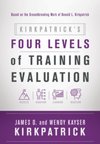
-
 Anglický jazyk
Anglický jazyk
Decision theory paradoxes
Autor: Source: Wikipedia
Source: Wikipedia. Pages: 31. Chapters: Allais paradox, Decision-making paradox, Ellsberg paradox, Monty Hall problem, Necktie paradox, Parrondo's paradox, St. Petersburg paradox, Three Prisoners problem, Two envelopes problem. Excerpt: The Monty Hall problem... Viac o knihe
Na objednávku
15.12 €
bežná cena: 16.80 €
O knihe
Source: Wikipedia. Pages: 31. Chapters: Allais paradox, Decision-making paradox, Ellsberg paradox, Monty Hall problem, Necktie paradox, Parrondo's paradox, St. Petersburg paradox, Three Prisoners problem, Two envelopes problem. Excerpt: The Monty Hall problem is a probability puzzle loosely based on the American television game show Let's Make a Deal and named after the show's original host, Monty Hall. It was originally posed in a letter by Steve Selvin to the American Statistician in 1975 (Selvin 1975a) (Selvin 1975b). It became famous in the following form, as a question from a reader's letter quoted in Marilyn vos Savant's "Ask Marilyn" column in Parade magazine in 1990 (vos Savant 1990a): Vos Savant's response (vos Savant 1990a) was that the contestant should switch to the other door. Contestants who switch have a 2/3 chance of winning the car, while contestants who stick have only a 1/3 chance. One way to see this is to notice that there is a 2/3 chance that the initial choice of the player is a door hiding a goat. When that is the case, the host is forced to open the other goat door, and the remaining closed door hides the car. "Switching" only fails to give the car when the player had initially picked the door hiding the car, which only happens one third of the time. The argument depends on the assumptions, made explicit in more extended problem descriptions given by Selvin (1975a) and by vos Savant (1991a), that the host always opens a different door to the door chosen by the player and always reveals a goat by this action - something he can always do because he knows where the car is hidden. Leonard Mlodinow says: The Monty Hall problem is hard to grasp, because unless you think about it carefully, the role of the host goes unappreciated. (Mlodinow 2008) Many readers of vos Savant's column refused to believe that switching is beneficial, despite her explanation of her answer. After the problem appeared in Parade, approximately 10,000 readers, including nearly 1,000 with PhDs, wrote to the magazine claiming that vos Savant was wrong (Tierney 1991). Even when given explanations, simulations, and formal mathematical proofs, many people still do not accept that switching is the best strategy
- Vydavateľstvo: Books LLC, Reference Series
- Rok vydania: 2015
- Formát: Paperback
- Rozmer: 246 x 189 mm
- Jazyk: Anglický jazyk
- ISBN: 9781155525662











